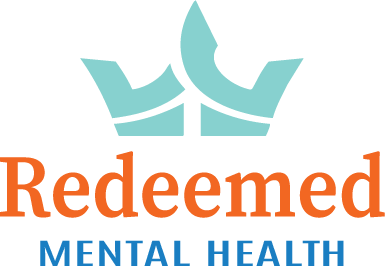 In 2021, an estimated 21 million people, or 8.3% of the population had a severe mental health disorder. Among adults aged 18 or older, 57.8 million people, or 22.8% of the population qualified for a diagnosis for a mental health disorder. That’s without considering the frequency of episodic mental health problems, which typically last 3-12 months. 1 in 5 U.S. adults will have a problem with depression, anxiety, schizophrenia, bipolar disorder, paranoia, and other mental health problems over the course of their lives. While that’s most related to such diverse risk factors as environment, genetics, and coping strategies, less obvious factors like nutrition and diet can also play a significant role. For example, the symptoms of many nutritional deficiencies mimic those of depression and anxiety. And, having an existing mental health disorder can result in a poor diet and exacerbated mental health symptoms.
In 2021, an estimated 21 million people, or 8.3% of the population had a severe mental health disorder. Among adults aged 18 or older, 57.8 million people, or 22.8% of the population qualified for a diagnosis for a mental health disorder. That’s without considering the frequency of episodic mental health problems, which typically last 3-12 months. 1 in 5 U.S. adults will have a problem with depression, anxiety, schizophrenia, bipolar disorder, paranoia, and other mental health problems over the course of their lives. While that’s most related to such diverse risk factors as environment, genetics, and coping strategies, less obvious factors like nutrition and diet can also play a significant role. For example, the symptoms of many nutritional deficiencies mimic those of depression and anxiety. And, having an existing mental health disorder can result in a poor diet and exacerbated mental health symptoms.
Understanding how your diet plays a role in mental health and managing your mental health disorder is an important part of taking control of your life and your wellbeing. A good diet can be difficult to maintain if you’re struggling with mental health. However, not doing so can often cause you to downward spiral and worsen your mental health disorder.
How Does Diet Affect Mental Health?
Diet affects mental health in multiple ways. The first is that a good diet is the foundation for feeling good. Fueling your body with the micro and macro nutrients it needs gives you the foundation to feel good. That means eating well about 80% of the time, following government nutrition guidelines, and eating diverse foods. Eating well gives you energy, helps to stabilize your mood, and prevents you from crashing.
A poor diet also directly impacts your mental health in much more direct and negative ways. And a poor diet can mean many things.
 Diets that are high in caffeine and sugar can exacerbate mental health problems by causing rushes of dopamine and serotonin, disrupting your brain’s reward system and balance. People who reply on caffeine and sugar to feel good will often have periods of high and low energy with crashes and fatigue, headaches, and other negative impacts to mental health.
Diets that are high in caffeine and sugar can exacerbate mental health problems by causing rushes of dopamine and serotonin, disrupting your brain’s reward system and balance. People who reply on caffeine and sugar to feel good will often have periods of high and low energy with crashes and fatigue, headaches, and other negative impacts to mental health.- Diets that are low in fruits and vegetables can result in nutritional deficiencies. For example, if you don’t get enough vitamins, you can start to develop deficiencies, which can cause fatigue, lack of resources for mental health, anxiety, depression, and much more. For example, amino acids, omega 3s and B-vitamins are the building blocks for dopamine, GABBA, and serotonin (you probably know the latter as the happiness hormone). Without enough of those nutrients, your brain literally won’t be able to produce the hormones you need to feel happy. Vitamin D deficiencies, which effect as much as 42% of the population, can also mimic depression, with symptoms of fatigue, joint pain, and a “down” mood. And, Vitamin A deficiencies can result in symptoms of anxiety and depression.
Essentially, if you don’t eat well, you’re sabotaging your health in more ways than once. Unfortunately, the more problems you’re having with your mental health, the harder it will be to eat well. And, that creates a negative cycle.
Mental Health Problems and Diet
While poor diet can worsen or even cause mental health problems, mental health problems often cause a poor diet. Often that’s because you don’t have the energy to cook or to go to the store. Or because you’re looking for an outlet or comfort food to temporarily improve your mood.
In either case, people who are struggling with their mental health often struggle with self-care. That means basic self-care like eating healthy meals, exercise, personal hygiene, and cleaning the home become difficult and exhausting. People in these situations can skip meals, eat prepackaged foods or make unhealthy food choices regularly, or go through cycles of starving and binging as energy levels cycle. That all worsens mental health problems by creating nutritional problems.
In addition, mental health problems can cause nutritional issues in other ways. For example, the worse your mental health, the worse your gut health. If you’re anxious, you’re more likely to have inflammation of the intestines, which means you’re having a harder time actually absorbing nutrition from the foods you do eat.
 What do Nutritional Deficiencies Look Like in Mental Illness?
What do Nutritional Deficiencies Look Like in Mental Illness?
It’s often impossible to tell if you’re having problems with nutrition in addition to a mental health diagnosis without a blood test and analysis. This means that only your doctor can say for certain if you’re low on Vitamin A or B or etc. However, doctors will more and more often use blood tests as part of diagnosis, which means that you may have to tackle issues of nutritional deficiency before getting a diagnosis for depression or anxiety. However, you should still be able to get treatment for the mental health problems, because many treatments are about coping with and managing mental health problems – not about curing disorders.
Treatment and Next Steps
If you’re struggling with mental health problems, it’s always important to ensure you’re getting enough nutrition. That means paying attention to how you’re eating and eating well. Unfortunately, without a blood test, you cannot decide if you have nutritional deficiencies. However, if you do, your doctor will likely prescribe remediating diets or supplements that can help you to recover more quickly. Otherwise, your best bet it to eat a healthy diet following the guidelines of something like myplate.gov.
If you’re struggling with mental health, making those decisions and consistently making good choices around food can be extremely difficult. For that reason, it may be a good idea to ask for help, to look into living in supported or shared living facility, or to ensure you have friends and family to help. Many people also benefit from meal prep and similar tactics. It’s also important to note that eating well is always more important than taking supplements, because supplements are rarely absorbed properly and may not help at all – while they cost a great deal.
Getting Help
If you’re struggling with mental health you can always reach out and ask for help. Often, that starts with your doctor, where you can get blood tests to check nutrition and recommendations into therapy and treatment.
Here, treating mental health disorders with comorbid nutritional deficiencies is often a multi-disciplinary approach. For example, you’ll typically receive:
- CBT or another traditional mental health treatment to help you manage and cope with the mental health problems
- Nutritional therapy to help you recover from the nutritional deficiency as quickly as possible
- Life skills therapy and training to ensure you have the skills and the habits in place to take care of yourself and to eat healthy meals
Good treatment should take a whole-body approach of looking at your body and your mind, taking time to allow both to heal. And, that can take a long time. That’s especially true if you have intestinal inflammation that reduces your ability to absorb nutrients. Recovering from nutritional problems can take months or even years. Mental health problems may also never go away and you may instead learn skills to cope with them and mitigate them.
However, getting treatment will ensure you have the tools to live your life in as happy of a way as possible.
Redeemed Mental Health is a mental health & dual diagnosis treatment center offering PHP, IOP, and individual levels of care. Contact us today to begin your journey of recovery!























